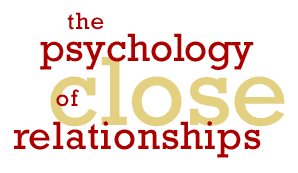  |
  |
 Dr. Brian Spitzberg
|
 Dr. Spitzberg is Professor of Communication at San Diego State University. His primary expertise includes interpersonal skills and the "dark side" in interaction (including intimate violence, stalking and sexual coercion). What are some interesting findings in close relationships communication? The most resilient research finding is the importance of affect -- emotion or mood -- in everyday interaction. This is especially clear during relationship conflict. For example, couples often display what we call negative affect reciprocity or NAR. This means that partners exchange their bad feelings back and forth in a cycle of disrespect and contempt. Unhappy couples seem to become trapped in this cycle more than happy couples. Are there any recent findings you find especially fascinating? We tend to presume the importance of clear communication in close relationships. It seems only sensible that unambiguous messages are best, where there's no doubt about what is being said. Surprisingly, it turns out that ambiguous communication plays a role in intimacy. Put another way, we send each other fuzzy or mixed messages all the time. Partners are often less than clear with each other. In fact, relationships thrive on using and exploiting ambiguity -- for example, stirring up jealousy, in courtship, and in sexual interaction. A popular book claims that, in terms of relationships, men and women are as different as if we come from different planets. Even though research shows we are more alike than different, how can men and women learn to understand and speak each other's language? There are actually very few differences in men's and women's communication behavior. In fact, we are far, far, far, far, far, FAR more similar in all our myriad ways of communicating than we are different! I hope I said that emphatically enough? When there are differences, they tend to be relatively small. In certain contexts, however, the behavior of men and women is likely to show sizable, meaningful differences. For example, during courtship and mating, men and women behave more differently than at other phases and stages of relationship development. What are some of the biggest mistakes couples make in their efforts to communicate? Related to your previous question: consulting popular books that offer bad advice and no basis in research. Seriously, a book may sport a cute title about "Mars and Venus" and achieve bestseller status yet, as we can see, offer no valid or even safe recommendations. Such writers have done real damage to their readers and the broader culture by popularizing misinformation. When couples seek to improve their relationships, they want good information from trustworthy sources, and they deserve no less. Avoid the appeal of celebrity writers proffering simplistic solutions. I think the most common mistake is the illusion of understanding in our communication with others. We have access to our own internal dialogue and presume that, when we say or do something, our meaning is clear for the other to comprehend. But, in fact, our meanings are more complex than even we know. Even the speaker may not know all that was said or even intended. How could the listener comprehend even a fraction of the "message"? The illusion creates a false sense of "being understood." It's true that we seem to communicate well enough for all practical purposes: we get to meetings on time, share "mutual" interests, and so forth. But when one person tells the other "I love you," they may have radically different meanings for a word so important to their relationship. Perhaps one thinks "love" means romance, dating, and sex, while the other thinks of marriage, family, children. Yet they feel they are in agreement because they both used the same word. What advice would you offer to people seeking to improve their relationship communication? It's extraordinarily difficult to change subtle, often unconscious patterns of communication that have become hardwired into everyday behavior over decades of life. This is one reason I advise against not only bad "advice" books, but against any "simple" advice for complex problems. You won't begin to change a lifelong habit by reading a three-page magazine article on "How to Have a Wonderful Life." For that matter, reading even good scholarly work won't be enough to alter behavior patterns -- but it can provide a better set of tools for understanding the behaviors we do engage in. Real change can be accomplished. It requires, first, that both members of the relationship agree that there is a need for change. Second, both partners must be flexible enough to engage in the process of change. Finally, the couple needs a consistent source of guidance for that direction of that change over time. This, I believe, is best achieved through counseling or reputable classes on relationship enhancement. It sounds like a lot of work. Changing for the better is hard. But the quality of our personal relationships is essential to our quality of life. Courses and clinics abound for clients seeking to quit smoking, stop drinking or lose weight. In contrast, how easy is it to find good advice and guidance for relationship improvement? As a society, we spend billions annually on managing the physical risks of unhealthy substances or diet, and not a public dime on enhancing people's relationships. Considering the importance of intimacy in every human life, it seems to be one of the most worthwhile investments we might ever make. |